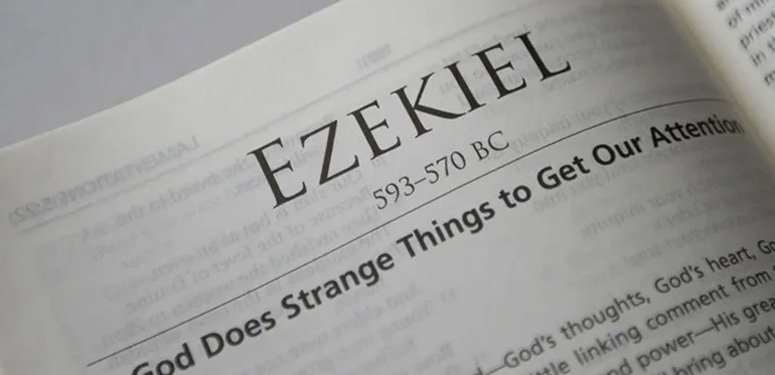Key Themes in the Book of Ezekiel

The Book of Ezekiel is one of the most theologically rich and complex texts in the Hebrew Bible. Traditionally attributed to the prophet Ezekiel, who was active during the Babylonian exile of the Jewish people, this book encompasses a myriad of themes central to the understanding of God, humanity, and the future hope of restoration. The prophet’s vivid imagery and compelling visions engage readers not only in the historical context of ancient Israel but also in the broader narrative of redemption that resonates throughout scripture.
Ezekiel’s prophecies, delivered amidst a time of crisis, grapple with questions of divine justice, righteousness, and the unfaithfulness of the people. He serves as a bridge between judgment and hope, illustrating how God’s holiness requires a response from His people. The key themes that emerge from this profound text invite readers to contemplate various aspects of faith, covenant, and restoration, urging a re-examination of their understanding of God’s presence and promises.
The Divine Sovereignty and Holiness of God
Ezekiel’s prophecies underscore the overwhelming sovereignty of God over creation and history. From the outset, the vision of God’s glory in the first chapter captivates the reader with its grandeur and power. Ezekiel describes God seated on a heavenly chariot—an image filled with mystical creatures and radiant light (Ezekiel 1:1-28). This portrayal reflects not only God’s majesty but also His authority to govern the affairs of nations.
Moreover, the book emphasizes God’s holiness, a recurring theme relevant not only to Israel but to all humanity. God’s holiness is often contrasted with the unfaithfulness of the people. Ezekiel frequently invokes this holiness to accentuate Israel’s failure to live in accordance with God’s commandments. For instance, in Ezekiel 36:22-23, God states, “I am not doing this for your sake, but for the sake of my holy name, which you have profaned among the nations.” This highlights that God’s actions are driven by His character and the need to uphold His holiness, reinforcing the reality that God does not act solely based on human merit or sin.
The Fate of Israel and the Call to Repentance
At the heart of Ezekiel’s message is the dire state of Israel following its exile. The themes of judgment and repentance are threaded throughout the text. Ezekiel’s prophetic ministry is set against the backdrop of Jerusalem’s destruction and the people’s disobedience. God had repeatedly warned His people through previous prophets, but their persistent rebellion led to severe consequences.
Ezekiel uses vivid and often shocking imagery to convey the gravity of the nation’s sins (Ezekiel 4:1-17). For instance, God instructs Ezekiel to lie on his side as a representation of Israel’s sin, a prophetic act that captures the seriousness of their spiritual condition. Furthermore, the recurring call for repentance emphasizes that despite their failures, the door to reconciliation with God remains open. In Ezekiel 18:30, God urges His people, saying, “Repent and turn from all your offenses; sin will not be your downfall.”
This call to repentance is foundational as it acknowledges the profound grace available to a wayward nation. It conveys the message that genuine repentance can lead to restoration, illustrating the nature of God as not only just but also merciful.
The Vision of Restoration
Ezekiel’s attention to Israel’s impending judgment is juxtaposed by his visions of future restoration. These profound glimpses into God’s redemptive plan assure the exiled people that their punishment is not the end of the story. Ezekiel 37 delivers one of the most well-known passages in the book—the vision of the valley of dry bones. In this passage, God commands Ezekiel to prophesy to the bones, symbolizing the people of Israel who felt hopeless and defeated. When the bones come together, are clothed with flesh, and receive breath, it signifies a dramatic restoration (Ezekiel 37:1-14).
The promise of restoration extends beyond mere physical renewal; it signifies spiritual revival as well. In Ezekiel 36:26-27, God declares, “I will give you a new heart and put a new spirit in you; I will remove from you your heart of stone and give you a heart of flesh.” This promise highlights the transformation that occurs within believers, pointing toward the New Covenant established through Christ, where the Holy Spirit enables a life of obedience and relationship with God.
Additionally, the detailed imagery of the restoration of the temple in Ezekiel 40-48 reflects God’s desire to dwell with His people once again. The meticulous description of the new temple conveys a restored relationship where God’s presence is central to communal worship and life. This vision creates a powerful hope amid despair, pointing to a time when God’s ideal will be realized in a renewed creation.
Final Thoughts
The Book of Ezekiel is a profound exploration of divine sovereignty, human disobedience, and the promise of redemption. Ezekiel challenges his contemporaries and readers alike to understand the consequences of sin and the necessity of repentance while simultaneously offering unparalleled hope rooted in God’s unwavering faithfulness. Through his prophetic ministry, Ezekiel reminds us of God’s holiness and justice, even as he emphasizes the depths of God’s grace and desire for restoration.
As we engage with these key themes, we embrace the broader narrative of God’s redemptive plan, a story that ultimately culminates in the person of Jesus Christ—the ultimate fulfillment of the prophecies of restoration. For modern believers, Ezekiel’s writings serve as a call to introspection, urging us to examine our lives in light of God’s holiness, while always cherishing the hope that we have through repentance and faith. The book’s message is timeless, offering insights that continue to resonate across the ages, inviting all to experience the fullness of life found in God’s loving embrace.
